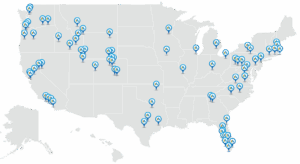The EU CSRD and Potential Impacts on US Companies
What is the European Corporate Sustainability Reporting Directive (CSRD)?
The CSRD, which aligns with The European Green Deal, is a law implemented by the European Union (EU) that went into effect on January 5, 2023. The CSRD strengthens rules pertaining to the reporting of environmental and social information by companies. This will begin with companies currently subject to the Non-Financial Reporting Directive (NFRD) who will have to report data from FY2024 in 2025. Going forward, approximately 50,000 companies will now be required to report more detailed sustainability information focusing on sustainability matters affecting development, performance, and position. Furthermore, the CSRD is projected to impact at least 10,000 companies outside of the EU. This directive will provide stakeholders such as investors access to information necessary for the effective analysis of investment risks and opportunities associated with a company. Additionally, under the European Sustainability Reporting Standards (ESRS), companies will be required to report certain sustainability information. The ESRS works in conjunction with the CSRD as it provides a framework and methodology for reporting on sustainability matters.
How does this affect American companies?
The CSRD establishes further sustainability and “Environmental, Social, and Governance (ESG)” reporting requirements for US-based companies that have at least one subsidiary or branch in the EU and have a net turnover of more than €150 million euros ($168 million) in two consecutive years.
A requirement of this directive is the need for a double materiality disclosure which consists of recognizing a company’s impact on people and the environment as well as how sustainability-related developments affect them. Additionally, an accredited independent third-party auditor must verify sustainability reporting information. There will be further sector-specific standards published over the coming years. US-based companies that meet the above criteria will have to comply with the CSRD for fiscal years starting on or after January 1, 2028.
How will this benefit American companies?
 The intention of the CSRD is to enhance the transparency of reporting. Additionally, the CSRD will generate a reduction in costs associated with sustainability and ESG reporting over the mid- to long-term as information will already be readily available. This directive may also yield a short-term benefit considering that the Securities and Exchange Commission (SEC) is in the process of proposing rule changes for climate-related disclosures. The current proposed rule changes by the SEC would require the disclosure of the following types of information:
The intention of the CSRD is to enhance the transparency of reporting. Additionally, the CSRD will generate a reduction in costs associated with sustainability and ESG reporting over the mid- to long-term as information will already be readily available. This directive may also yield a short-term benefit considering that the Securities and Exchange Commission (SEC) is in the process of proposing rule changes for climate-related disclosures. The current proposed rule changes by the SEC would require the disclosure of the following types of information:
- Regarding a company’s governance on climate-related risks;
- How these risks have had or are likely to result in a material impact on the business and its consolidated financial statements;
- How these climate-related risks affected or may affect their strategy, and;
- How climate-related events and transition actions impact line items of the company’s consolidated financial statements and estimates.
Through the utilization of the CSRD, US companies are likely to be better aligned with the SEC regulations once they are finalized and implemented. Both sustainability and ESG reporting provide a net benefit for companies as accountability, transparency, and clarity are all increasingly important for understanding a company’s bottom line. As interconnectedness has become an inherent aspect of globalization, risk management and strategy play a pivotal role in the sustained success of companies regardless of their size. Sustainability and ESG reporting have gained traction as they address the potential opportunities and risks in an ever-changing world.
Apex is an expert on reporting frameworks and methodologies and can help you navigate these changes, whether you have global locations and will be required to comply with the CSRD, or if you simply want to ensure that you are being proactive and are using the CSRD to prepare for future US reporting requirements. To discuss your needs with one of our experts, please contact us today. And make sure to subscribe to our blog and newsletter for more updates like this.
Apex Associated Press (Apex AP) represents contributions from various authors within the Apex professional community.
Disclaimer
Please note that all content provided on this blog is for informational purposes only and does not necessarily represent the views, opinions, strategy, or methods of Apex Companies, LLC (Apex). Apex makes no representations as to the accuracy or completeness of any information on this site or found by following any link on this site. Apex will not be liable for any errors or omissions in this information nor for the availability of this information. Apex will not be liable for any losses, injuries, or damages from the display or use of this information. Apex reserves the right to edit or delete any comments submitted to this blog without notice to whoever wrote, submitted or posted the comment. Anyone who submits or posts any material to this blog waives any right or claim to privacy with respect to the content submitted or posted. By submitting or posting any content, the person or entity that does so is representing that they believe it to be accurate, have a legal right to the content, and have legal authority to submit or post it. Please do not submit or post anything if this is not the case. Please consider these requirements carefully when submitting or posting comments, photographs or other material relating to third parties who may have privacy, ownership or other rights implicated by the content. Readers are encouraged to seek professional legal, scientific, and/or engineering consultation concerning specific environmental, engineering, or other concerns. If you would like to contact Apex for more information regarding professional consultation to address your specific concerns, click here.






